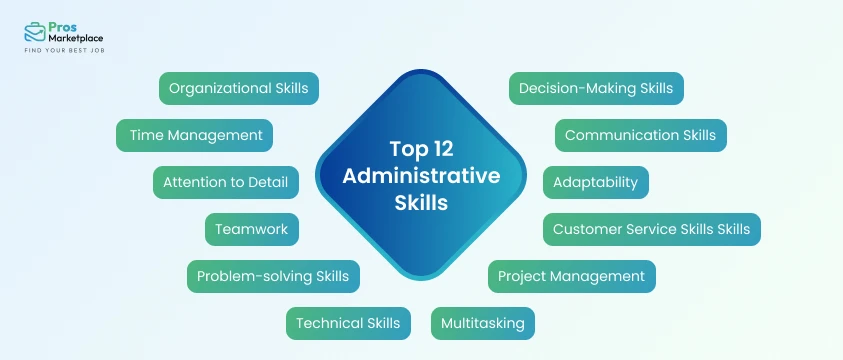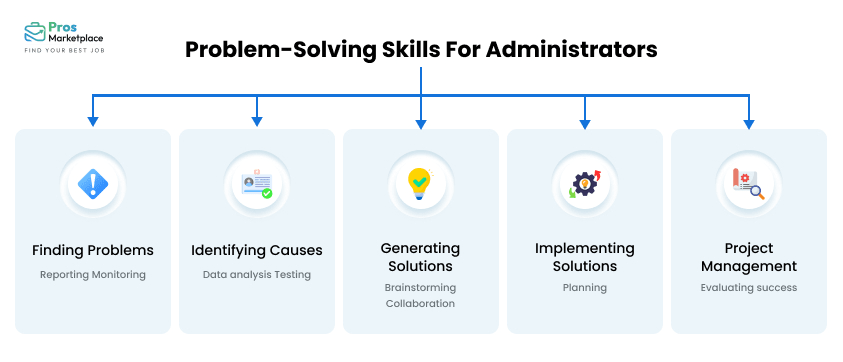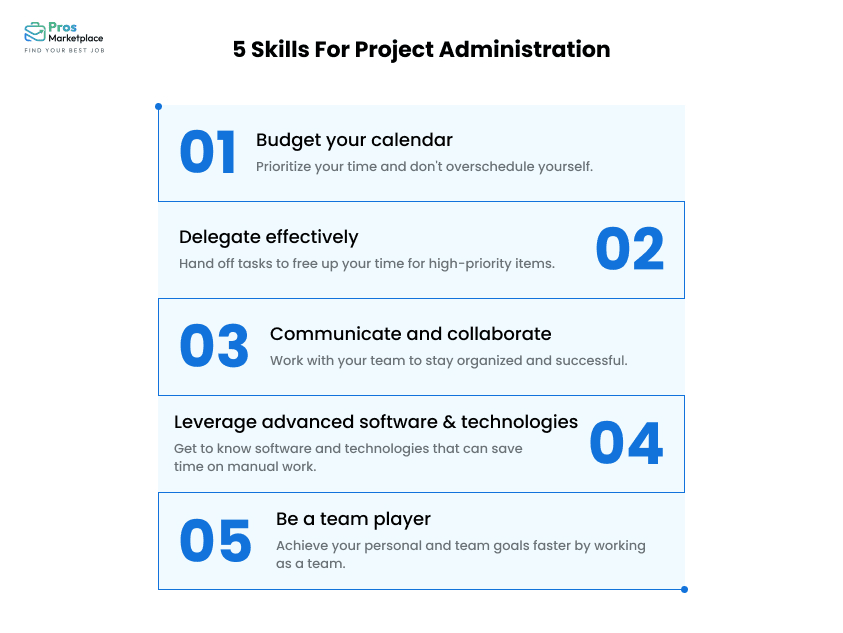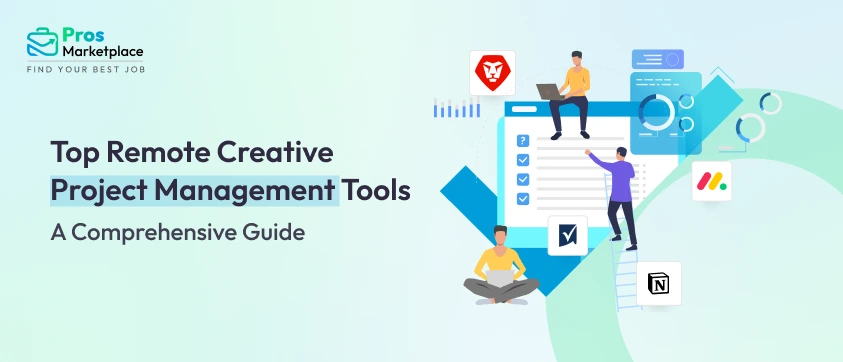Administrative skills refer to the expertise of managing operations in the workplace and getting them done effectively. These skills make professionals capable of completing several tasks, like assisting teams in achieving their goals and helping them perform business functions.
Since administrators comprise an important part of the workplace, we will discuss administrative skills in detail, their types, and practical tips to enhance them. Besides that, we will also provide insights into the top 12 administrative skills every professional needs to acquire to grow professionally. Read below to learn more about them.
What Are Administrative Skills?
Administrative skills are the ability and knowledge needed to handle work efficiently. Such skills include organizing files, schedules, and coordinating teams. They help keep a business working without disruptions for the team and the leaders. Generally, administrative professionals must be adaptable, organized, and proactive since their work affects productivity at the workplace
Types of Administrative Skills
Administrative skills are a must-have for an organized workplace. Many qualities and skills make a good administrator. These can make the work stress-free and help administrators contribute better to the working teams. So, let’s see the kinds of administrative skills and the tips for improving them:
Different varieties of administrative skills are classified according to their application in the workplace. The following ones are:
- Organizational Skills: Keeping tasks organized, managing time effectively, and utilizing available resources to their best.
- Communication Skills: Effective communication of information, both verbal and written
- Time Management: Multitasking and ensuring that everything is done at the right time during the working hours
- Technical Skills: This comprises knowledge regarding different types of software and technical tools for processing routine office work.
- Problem-Solving Skills: Quickly finding solutions to challenges as they arise.
- Teamwork Skills: Involve working collaboratively with others to meet common goals.
Top 12 Administrative Skills

Administrative skills are essential to success in one’s profession. Being a core competency would make you a valuable resource for any organization. Let us take a look at the top 12 administrative skills that every professional should be good at mastering.
Here are the top 12 administrative skills that every office professional needs to master.
1. Organizational Skills
Organizational skills are one of the most important skills in handling multiple tasks. An organized professional can set priorities, maintain cleanliness in the workspace, and retrieve documents easily. This includes organizing physical spaces such as storage, office supplies, or even an office snack display, making the workspace more welcoming and efficient. Good organizational skills prevent waste of time and result in productivity. In addition, they minimize errors and make it easy for the team members to fetch information. An organized person also gets more concentration and efficiency.
2. Time Management
Proper time management will ensure one plan and controls exactly how much time to spend executing specific tasks. Deadlines are essential when performing administrative roles. This would ensure that work is done within set time frames without compromising quality. Proper time management will set priorities, break up large chunks of work, and identify when to delegate. It helps to alleviate stress, aids in the completion of goals, and supports a well-balanced workflow. Time management also supports a good work-life balance.
3. Communication Skills
Communication forms the base of all administrative tasks. Effective communication allows administrators to send instructions, answer questions, and provide feedback to management. This includes verbal, written, and even non-verbal communications. Active listening ensures that you understand your colleagues’ needs. Good communication will enhance cooperation and diminish the incidence of conflict in the workplace. The ability to write emails, reports, and memos falls under this competency. A positive working environment depends on good communication skills.
4. Attention to Detail
Accuracy is achieved through attention to detail. Administrators have to work with documents, invoices, and schedules, which requires precision. A small mistake can become a big issue in the office setting. This demands precision, double-checking work, and identifying errors before they get out of hand. Attention to detail reduces risks and errors while ensuring professionalism. Detail-oriented administrators make a company reliable. It also shows an intent for quality.
5. Problem-solving skills

Problem-solving skills are needed to resolve any situation in the office. Although not all problems are technical problems, some can be individual as well. This required attention to detail to forecast a problem, see the problem at the earliest, set an alternative, and get everything into its place. This ensures they proactively solve most of these problems and ensure minimum downtime while performing duties and obligations. Besides this, it also exhibits adaptability concerning such action.
6. Technical Skills
To live in this digital age requires at least fundamental technological knowledge an administrator should possess. Basic office software, like Microsoft Office and Google Workspace, among many specific tools, are a must. Technical skills enhance the ability to manage documents and data. On top of that, knowing how to use this project management tool increases one’s productivity by maximizing efficiency. Such a person wouldn’t ask for much IT support as required and can focus on keeping up with their tasks.
7. Decision-Making Skills
Decision-making is an important administrative skill. Administrators have to make most of the decisions that will affect the office environment. Decisions range from the time of holding a meeting to when to allocate resources.
It demands the assessment of information, a decision on which option to pursue, and considering the outcome of the situation. Proper decision-making allows for a fluid workflow and the timely delivery of work. It can also be helpful in terms of managing crises and the unexpected. This skill enables team members and management to trust one another.
8. Multitasking
Multitasking is the ability to perform more than one task at a time. Administrators usually have various tasks, ranging from taking calls to making appointments. It enables administrators to work with great efficiency when under pressure. This helps fulfill several deadlines and respond to shifting priorities. Multitasking fosters productivity in high-demand environments. However, be careful about not letting yourself burnout; the key is managing just the right balance.
9. Adaptability
Adaptability is also very important in workplaces as changes are constant. The administrators put themselves into new software, updated policies, and changing deadlines. Being adaptable is all about handling unexpected challenges with no stress. It can help make quick adjustments so that delays in the workflow are avoided. Great adaptability in professionals has seen them labeled as flexible and reliable. This ability will also indicate a person willing to learn and grow with the organization.
10. Customer Service Skills
Customer service helps administrators when interacting with clients, customers, or visitors. It involves listening, understanding complaints, and responding politely. Administrators with good customer service can handle complaints and resolve issues efficiently. It builds trust and satisfaction among customers. More so, it improves interpersonal relationships within the office. This is even more important in customer-facing industries.
11. Project Management

Project management refers to the planning, organization, and management of projects to achieve objectives. However, project management in administrative roles includes providing timelines, managing resources, and coordinating activities. With skills in project management, an administrator can easily divide a task into simple steps. They would be able to track projects, identify problems that crop up, and address such problems. This is quite an important skill when carrying out events, big projects, or even team projects. More efficiency is achieved. So, the chances of successful results improve.
12. Teamwork
Team collaboration requires teamwork skills to achieve common goals. Administrators often work in collaboration with other departments. Teamwork makes them more effective resources.
Good teamwork skills promote a healthy work environment. This encourages healthy communication, reliability, and cooperation with the members. This helps develop a close relationship within the organization. Team-oriented administrators can efficiently manage conflict issues and contribute more to the company’s goals. Teamwork skills enhance productivity and teamwork in the workplace.
How to Improve Administrative Skills
Improving your administrative skills is a lifelong process that requires commitment and practice. With the right strategies, you can significantly improve your abilities and workflow. The section below gives you insight and practical advice to develop and fine-tune your administrative skills.
- Online Courses: Online platforms offer courses on administrative skills.
- Practice with Real Tasks: Apply your skills to gain confidence.
- Seek Mentorship: Find yourself a mentor in your discipline.
- Request Feedback: Helpful criticism to identify your strengths and weaknesses.
- Practice Regularly: Practice tasks like scheduling and organizing to become more efficient.
- Use Tools and Software: Use applications like calendars, project management software, and databases to ease workflows.
- Keep Up-to-date Knowledge: Tools and trends in administrative work need to be learned to stay ahead.
- Set Goals: Focus on attaining specific goals for each skill to monitor progress.
Conclusion
Any professional looking for a successful career in managing operations needs administrative skills. These skills help you in the everyday functions of your job role like communication, organization, problem-solving, and teamwork. Although time is required to develop administrative skills, the reward is great: increased productivity, better working relationships, and personal development.
Remember, setting clear goals and practicing will improve and increase your administrative capabilities, making you valuable to any organization.







